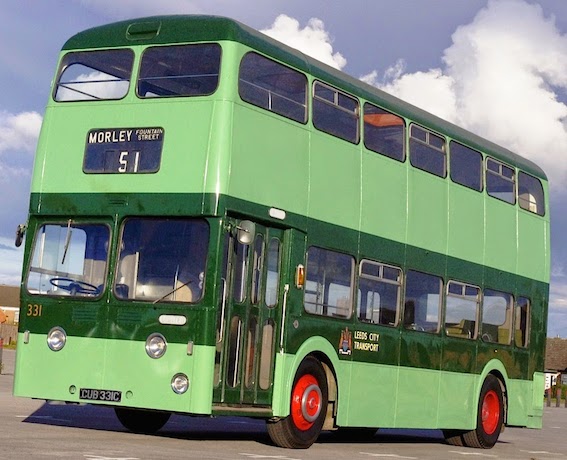

![]() What have the motor-manufacturing pioneer Henry Ford, politician Margaret Thatcher and the White Rose Centre got to do with my being inconvenienced?
What have the motor-manufacturing pioneer Henry Ford, politician Margaret Thatcher and the White Rose Centre got to do with my being inconvenienced?
I came home on Friday to find a letter from Leeds Building Society telling me that my local branch was closing in a couple of months. This is the branch that I go into a couple of times a week and have a friendly chat with the staff while I’m sorting out my money.
Last year the Chief Executive of the Leeds Building Society, Peter Hill, received a 12 per cent pay rise up to £728,000. The society’s profits had risen to £116m and it had reached a new all-time membership high of 756,000. This is not a company in trouble, rather it is a company that is thriving and paying its bosses accordingly.
About 6 weeks ago Mr Hill told the Yorkshire Post “Branches are very important to us and feature heavily in our plans for the future…For us, branches are there to provide help, support and advice…Right now our branches are really busy.”
Fast forward to Friday and we find out that they are closing their branches in Armley, Beeston, Chapel Allerton, Harehills Road and Street Lane, as well as a few outside of Leeds.
The rationale given for the closures is that members are using multiple branches, telephone and the internet to operate their accounts and that these changes in member needs and the low use of some branches has rendered them unsustainable.
This just doesn’t ring true. Which is where Henry Ford comes in. Ford knew that he could make economies of scale when manufacturing cars. This would not be a handmade, bespoke business but one which used division of labour and mass industrialisation to churn out his product. It was capitalist money-making of the most impersonal kind. But Ford made no pretence that it was anything other than this and his cars were incredibly popular with the public. The economies that Leeds Building Society are making seem to come at a cost to its members and are extremely unlikely to be popular and the reason given for the closures is disingenuous. My branch always seems busy. But that’s not all. We’re “members” not “customers”. This shouldn’t just be about cut-throat capitalism. Building societies are not the same as banks and don’t have the same duty of “profits above all else” to shareholders that banks have. They should care about their members.
Which is where Mrs Thatcher comes in. She famously said there was no such thing as society. But when I stand in the queue at Leeds Buildings Society’s Beeston branch I see evidence to the contrary. I see staff chatting to elderly customers, possibly providing them with one of the only points of human contact they will have that day. I see the staff using customers’ names because they see the same customers all the time and know what’s going on in their lives – holidays, grandkids, operations and recoveries and all the other little things that occupy us. I often see motability scooters parked outside the branch while their owners are inside doing their transactions. The staff are real people who some of the more vulnerable people can chat to and confide in. And these staff would notice if suddenly one of these people stopped coming in. The clue is in the name of the Building Society – Thatcher was wrong.
And finally the White Rose Centre is an example of how things have moved away from localism. If we think of the areas where we live as little villages then in my lifetime it has been especially hard on village life. As a child I can remember a row of shops within 70 yards of my house that had not just a Post Office but also a butchers, a greengrocers, a minimarket, a fishmongers and a sewing shop! We grew up accustomed to local pubs, which have been killed off in their thousands, and local shopkeepers who knew our names. Little local shops are much harder to find now If you’ve got a car then it’s cheaper and easy to drive to the White Rose to get your shopping. It just isn’t as friendly. How many of the staff at the White Rose know your name or would notice if you didn’t call in for a tin of salmon?
Close branches to increase profits but don’t insult our intelligence by telling us that it’s because the elderly are banking by internet these days. Have the good grace to admit that you’re making economies of scale, that you’re not concerned with providing a pastoral service to people who really rely on you, and that your interests are not in local communities but are in money.
If it takes a village to raise a child then what does it take to maintain that village? I’d suggest you could start by not forcing the elderly to go into the centre of the city every time they need to draw some money out. And when they do go into the town centre branch – if they can even get there – it’s unlikely that the staff will have the same rapport with them that those in the local branches had.
Mr Hill, don’t kill communities – because that is what you’re doing – in the name of profit while telling us that it’s because we’re all online these days. We’re not stupid and you have no real need to do it. You already earn plenty – you don’t need whatever bonus this will earn you.


